As parents, we strive to provide our children with the best possible start in life, nourishing their bodies and minds with healthy, whole foods. However, the harsh reality is that many of the foods lining our grocery store shelves are laden with harmful chemicals and additives, posing a serious threat to our children’s health and well-being. In the United States, food manufacturers often utilize a myriad of synthetic substances that are banned or heavily regulated in Europe, raising questions about the safety and ethics of our food supply.
The stark disparity between food regulations in the US and Europe is a cause for concern. While European countries have implemented stringent standards to protect consumers from harmful additives, the US lags behind, allowing a plethora of questionable substances to pervade our food supply. This discrepancy can be attributed, in part, to the powerful influence of lobbyists in the US food industry, who wield considerable sway over policymakers and regulatory agencies.
One of the most concerning aspects of American food production is the widespread use of artificial food coloring and chemical additives. These substances, which serve primarily to enhance the appearance, flavor, and shelf life of processed foods, have been linked to a host of health issues, particularly in children. Studies have shown that artificial food dyes can exacerbate hyperactivity and attention deficit disorders in susceptible individuals, leading to behavioral problems and learning difficulties.
In response to growing public outcry, some states have taken steps to address the issue of harmful food additives. California, for instance, recently passed regulations requiring manufacturers to label foods containing synthetic dyes with a warning label indicating potential adverse effects on children’s behavior. While this represents a positive step forward, more comprehensive regulation is needed at the federal level to safeguard the health of all Americans, especially our most vulnerable population – our children.
Despite mounting evidence of the harmful effects of certain food additives, the Food and Drug Administration (FDA) has been slow to enact meaningful change. Critics argue that the FDA’s regulatory process is riddled with loopholes and lacks transparency, allowing manufacturers to continue using questionable substances with impunity. Furthermore, the close ties between the FDA and the food industry raise questions about conflicts of interest and undermine public trust in the regulatory process.
The harm inflicted by these chemical additives extends far beyond behavioral issues. Studies have linked artificial food dyes to a range of health problems, including allergies, asthma, and even cancer. By exposing our children to these toxic substances at a young age, we may be unwittingly putting them at risk for chronic health conditions that could haunt them for a lifetime.
Sadly, this is an ongoing loop of deception. However, the most recent incident includes Jason Karp, a Kellogg shareholder and founder of the healthy foods company HumanCo, calling out Kellogg for using “harmful additives” in Froot Loops and Baby Shark cereals which still contain artificial dyes like Red 40, Yellow 6, and Blue 1 despite the company pledging to phase out those types of ingredients back in 2015. Kellogg sells safer, “better quality” products in other countries while making inferior, more harmful versions full of artificial food dyes (that require warning labels in the EU) and the preservative BHT to unknowing American families. Clearly, Kellogg abandoned this pledge as they continue to make new cereals with these harmful additives that require warning labels or are banned in other countries.
I’ll be honest, I’m not sure why American (or any) parents are buying these cereal products for their children. There are many other “healthier” options for cereals and snacks. In this case, if enough consumers demand reformulation, it will happen as it has before. Though I don’t know how you can really reformulate Froot Loops to be much “healthier”. If enough consumers stop buying the product it will “magically” disappear. However, millions of parents buy this junk for their children and they should get “at least the same poor quality ultra-processed food” they get in the EU and Canada. The American version doesn’t need to be even worse.
This situation is a reminder of why so many people have diabetes, heart disease, cancer and auto-immune issues and why so many children struggle with mental health issues and have severe allergies. Sadly, so much of our food is filled with toxic, synthetic, and cheap ingredients. We all know there’s a better way to make the foods we love without sacrificing taste or health. Please try to buy the best quality food you can afford.
As parents, it’s imperative that we advocate for change and demand greater transparency and accountability from food manufacturers and regulatory agencies. By educating ourselves about the dangers of chemical additives and making informed choices about the foods we feed our families, we can take a stand against the rampant use of harmful substances in our food supply.
Moreover, we must support initiatives aimed at reforming food regulations and promoting access to healthy, unprocessed foods for all Americans. By working together to raise awareness and effect change, we can create a safer, healthier future for our children and generations to come.
Vani Hari, aka Food Babe, has been an amazing advocate for food safety and has facilitated change with many large food manufacturers. Here is a link to the petition for Kellogg to remove artificial colors and artificial flavors from their cereals. Join in! https://foodbabe.com/babyshark/

